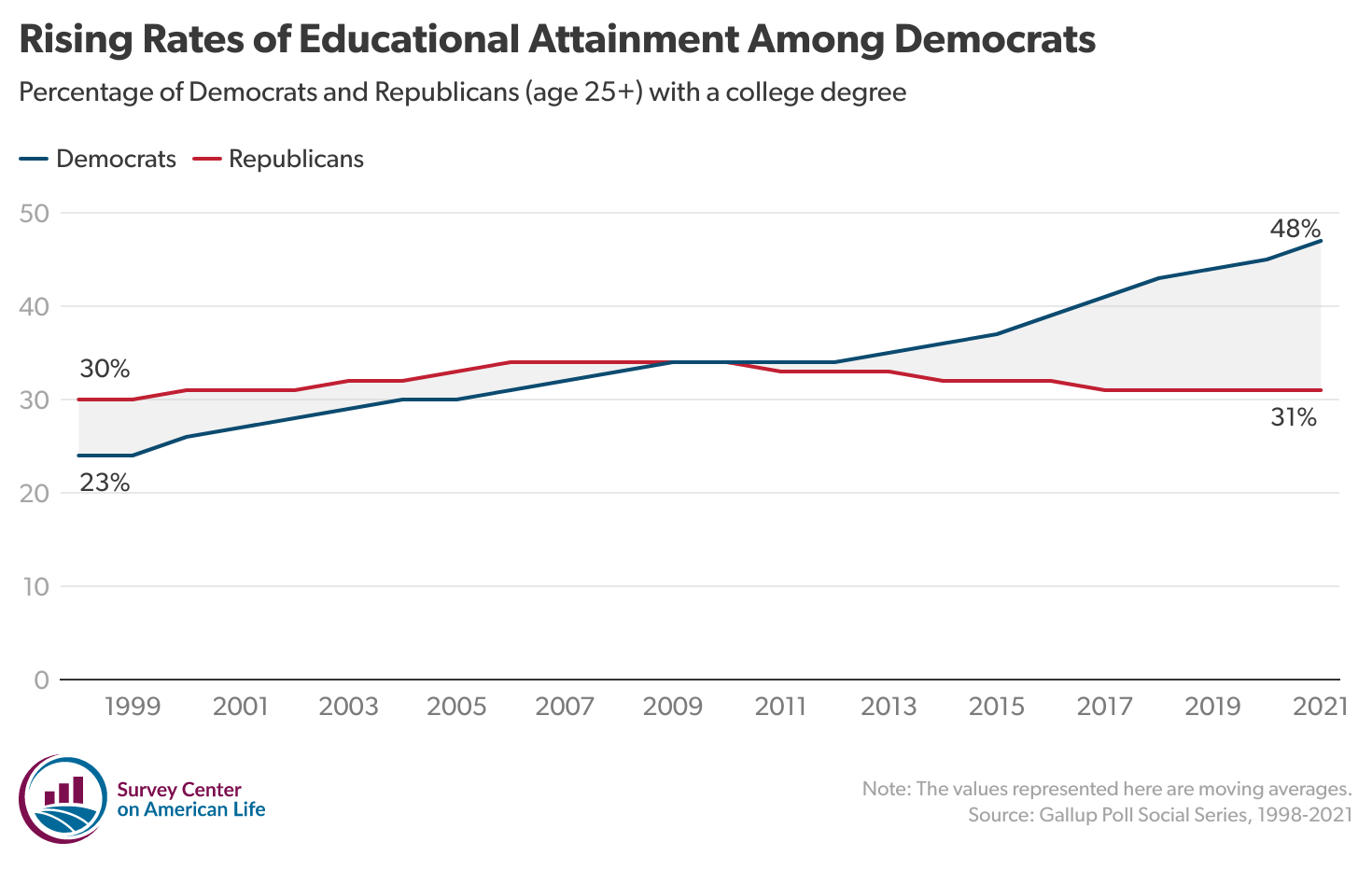Featured Data July 29, 2022
A College-Educated Party?

A College-Educated Party? The Democratic Party has undergone a remarkable transformation over the last two decades. Nearly half (48 percent) of Democrats today have a four-year college degree, a dramatic increase since the last 1990s when only about one in four had a college education. Much of this change is the result of the growing number of college-educated women who identify as Democrat. In the late nineties, only 13 percent of Democrats were college-educated women, but they make up 28 percent of the party today. In contrast, the educational profile of Republicans has changed little over the last two decades. In the late 1990s, three in ten Republicans had a college education, while roughly as many (31 percent) have a college education today.








